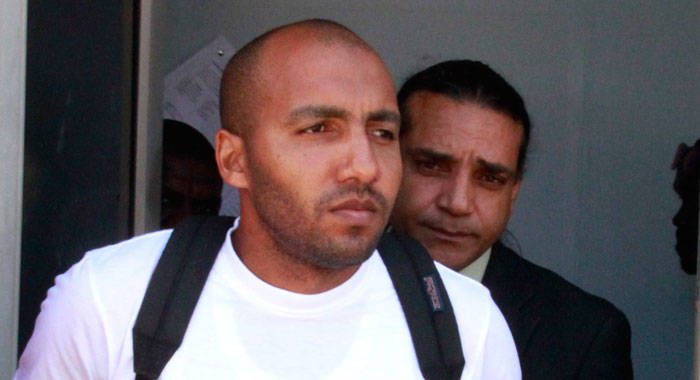A former police officer’s appeal of his December 2018 conviction on a charge of possession of 62 lbs of meat, reasonably suspected of being stolen or unlawfully obtained, has raised a constitutional point that the High Court must rule on.
The Court of Appeal has therefore ordered that the appeal be adjourned pending the determination of the constitutional question.
The issue surrounds whether section 308 of the Criminal Code of St. Vincent and the Grenadines offends against section 82(a) and 8(7) of the Constitution.
Section 308 of the Criminal Code says:
“Any person who is charged with having in his possession in any place, or conveying in any manner, anything which is reasonably suspected of being stolen or unlawfully obtained and who does not give an account to the satisfaction of the court as to how he came by the same, is guilty of an offence and liable to imprisonment for six months.”
However, Section 8(2)(a) of the Constitution states, “Every person who is charged with a criminal offence … shall be presumed to be innocent until he is proved or has pleaded guilty” and 8(7) says, “A person who is tried for a criminal offence shall not be compelled to give evidence at the trial”.
In December 2018, at the Kingstown Magistrate’s Court, then Senior Magistrate Rickie Burnett found Granville De Freitas, of Chester Cottage, guilty of unlawful possession of 62lbs of meat.
De Freitas was arrested aboard a minivan on July 4, 2017 as police were conducting a stop and search.
The then 29-year-old former police officer had led his own defence and had even made a no-case submission at the end of the prosecution’s case.
However, when that submission was rejected, De Freitas retained counsel Ronald “Ronnie” Marks to defend him.
Marks also represented De Freitas when the appeal came up for hearing during a virtual sitting of the court on Monday, while Crown Counsel Rose-Ann Richardson appeared for the respondent.
Richardson told the court that the respondent had conceded that the Section 308 of the Criminal Code, as it now stands, is unconstitutional.
She said the section has created a requirement on an accused person to give evidence to the satisfaction of the court as to how the accused was in possession of the thing for which the accused is charged.
Richardson said that in the St. Lucia case of the attorney general v. Hippolyte, the Court of Appeal affirmed the decision of the judge who deemed a similar provision in St. Lucia unconstitutional.
And in that case, the court held that the unlawful possession section creates three elements and one of the essential elements is where this reverse burden was placed on the accused, she said.
The Crown Counsel pointed out that the court held that this was an important ingredient of the offence and placed the onus on the accused in order to avoid being found guilty.
The court held that this contravened the presumption of innocence section of the Constitution of St. Lucia and ultimately struck down the provision.
She said that in the De Freitas case, the section is quite similar to the St. Lucia provision.
“Importantly, the constitutional point didn’t quite arise at the magistrate’s court. Had it arisen then, the magistrate was mandated to refer it to the High Court, which has original jurisdiction to hear constitutional matters,” Richardson noted.
She said that with the constitutional point having now been raised and in the face of case law that it is unconstitutional, the question is what would be the next procedure.
Richardson said that the Appeal Court, hearing the appeal, has the authority to refer it to the High Court so that the constitutional fate of the section could be properly dealt with.
She said that the magistrate would have had to refer the constitutional question to the High Court.
The crown counsel said that the Criminal Code of the laws of SVG gives the Court of Appeal the power, as it is hearing the matter, to exercise any order the magistrate would have exercised and to the same effect as if it was made by the magistrate.
She said it would be in the best interest of all to have the constitutional point referred to the High Court so all interested parties, including the attorney general, could make representation on the issue.
Meanwhile, Marks told the court that the decision in the St. Lucia case was quite instructive because the section complained of is the same as in SVG.
He said he would argue that the High Court having pronounced on it in St. Lucia is enough to not allow the matter to go forward.
The lawyer said the direction by then magistrate Burnett was clearly in opposition to the presumption of innocence.
“If we are dealing with this particular issue, unless we can find some distinction between the principles in St. Lucia and here, I would argue that the outcome will be the same,” Marks said.
He, however, said he believes the matter would be taken through “the rigours of the High Court proceedings to cement it in this jurisdiction”.






